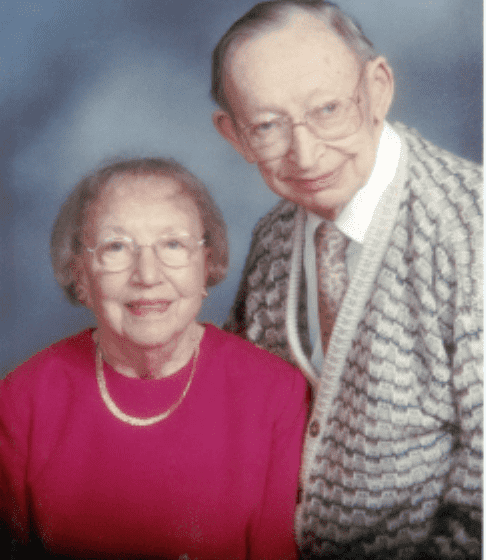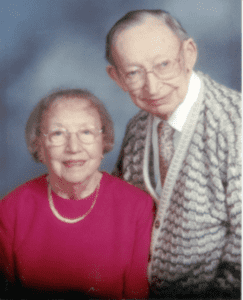

My parents, William (Bill) and Elinor Henning, both suffered the loss of their father while in their early twenties.
“Silence happens on Saturday. After trouble hits you, after the agony of Friday, you call out to God. . . . On Saturday, in addition to the pain of Friday, there is the pain and the silence of the absence of God.”- John Ortberg, Who is This Man? (2012)
“Surely he hath borne our griefs and carried our sorrows; yet we did esteem him stricken, smitten of God, and afflicted. But he was wounded for our transgressions, he was bruised for our iniquities: the chastisement of our peace was upon him; and with his stripes we are healed.”- Isaiah 53:4-5 (KJV)
Both my maternal and paternal grandfathers died before my birth in July 1951. My mom’s father, Hugo Dahlke, died at the age of fifty-five on December 3, 1937 – during the Great Depression. Elinor turned twenty-one four months earlier. Almost nineteen years later, her mother Charlotte died while visiting us. I was only five years old and mourned my favorite grandma.
My dad’s father, also named William, died as a result of an elevator accident at his workplace on November 29, 1944. At the time dad, age twenty-three, served in the Army Signal Corp, operating a teletype machine in Burma. Certainly, dad felt great sorrow over his absence, unable to comfort his mom – on the other side of the world.
Growing up, I always sensed a quiet strength in my parents. Even though they knew that silence happens on Saturday, they lived the hope released on Easter Sunday. Writing in Who is This Man?, John Ortberg underscores that everyone knows Saturday – the day your dream died. Yet, you must go on, but you don’t know how. Even worse, you don’t know why. So, this raises a question: Why is there a Saturday? Because it’s a strange, in-between day. A day between despair and joy, confusion and clarity, darkness and light. Even the Bible only tells us about the guards posted to watch the tomb. Most significantly, the prophet Hosea wrote:
“After two days he will revive us; on the third day he will restore us, that we may live in his presence (Hosea 6:2, NIV).”
Therefore, Pastor Ortberg notes, three choices present themselves when silence happens on Saturday. Hence, you can choose:
- despair – you believe Sunday will never come. As a result, you engage in disappointment management. Because you see no hope, you silently, secretly live there.
- denial – you wear a mask of artificial pleasantness as you offer simplistic explanations and easy answers. Thus, as John phrases it, you hydroplane over authentic humanity.
- wait – even when God feels far away, you purpose to work with Him. Cry out. Above all, rest in the Lord and trust.
In conclusion, Pastor Ortberg observes that, from a human standpoint, we think of Easter Sunday as the miraculous day. However, John wonders if, from heaven’s standpoint, the great miracle occurred on Saturday. The only day in over two thousand years not one person in the world believed Jesus was alive. Consequently, John sees the miracle of Saturday centering on the fact that the eternal Son of God lies dead. Only to rise on Sunday and release hope.
The Apostle’s Creed states that Jesus descended into hell. Somehow, even though silence happens on Saturday, any suffering you go through Jesus endures to save you. Pastor Ortberg exhorts:
“So Jesus Christ defeats our great enemy death not by proclaiming his invincibility over it but by submitting himself to it. If you can find this Jesus in a grave, if you can find him in death, if you can find him in hell, where can you not find him? Where will he not be?”

